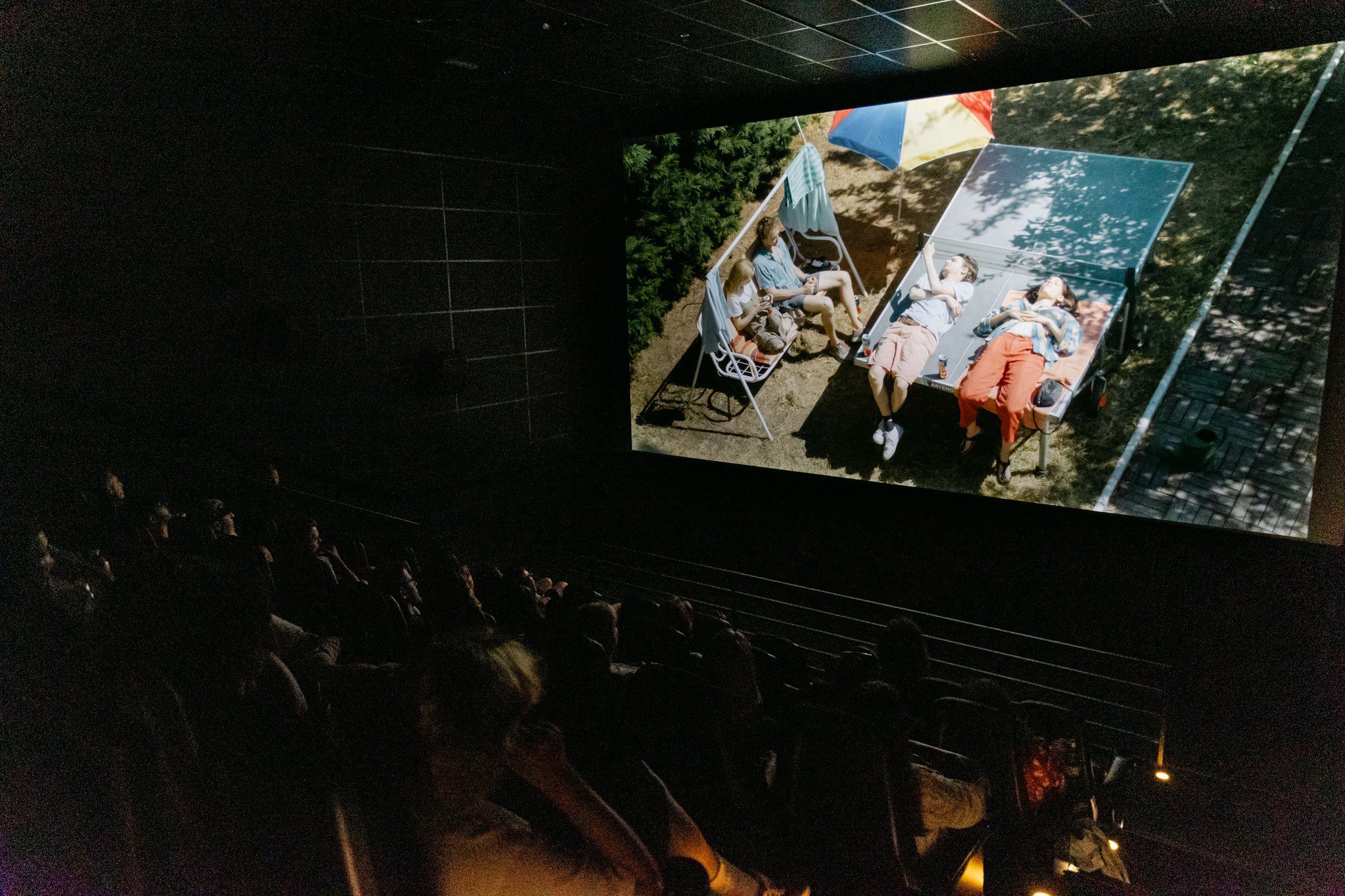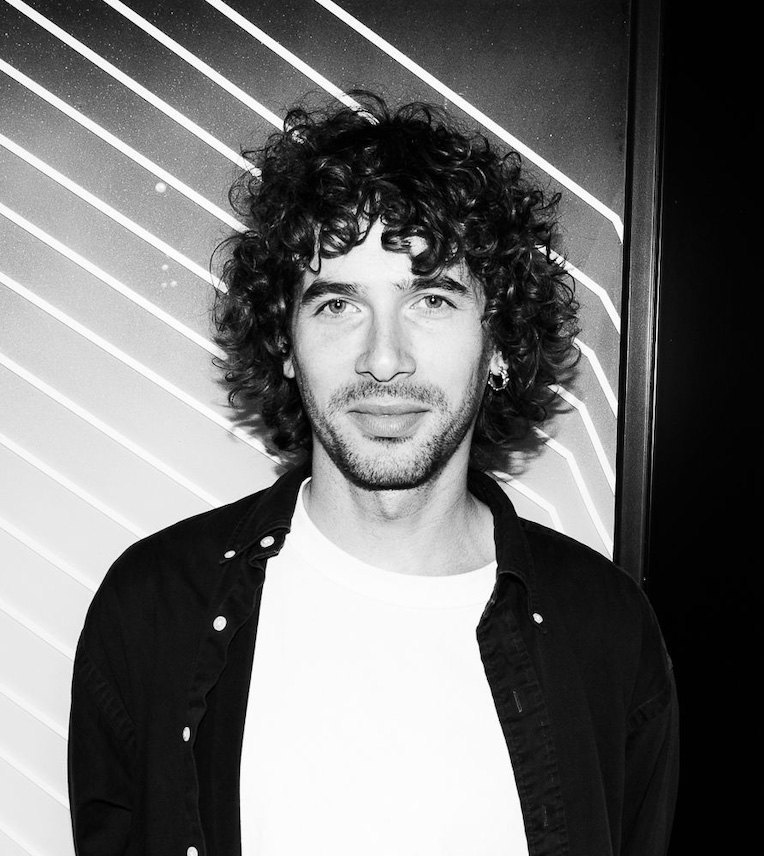
How did the idea to create a festival that would simultaneously combine the contexts of borderlands and neighbourhoods come about?
I suppose borderlands are still viewed through a distant prism. When you live near the border, it is more a part of everyday life, your neighbours. I was born and raised in Uzhhorod, and although I haven't lived there for a long time, my connection to the city is very personal — my mother, friends, and memories are there. For the last 14 years, our organisation has been trying to show films in Uzhhorod: individual events, films at the Stanley Kubrick Cinema, and less frequently at Pannonia.
The issue of cultural decentralisation has never been an empty slogan for me — it is a personal experience and an inner need. When I was 15–16 years old, I did not understand why a city with such a history, with people who were already part of the European context at that time, had almost no cultural life. Later, when I started getting involved in cinema and cultural events myself, it became clear: resources, finances, institutions — none of this was available in small Ukrainian cities in the early 2000s. That is why, although the first ideas for the festival appeared more than 10 years ago, it was only in 2022 that it was possible to realise them. Now there is more cultural life in Uzhhorod, but it still relies mainly on enthusiasts.
The Neighbours' Cinema Festival is co-financed by the governments of the Czech Republic, Hungary, Poland and Slovakia through the International Visegrad Fund — our main partner, which believed in this idea from the very beginning. The development of cross-border cooperation and dialogue in Central Europe is also important to them.
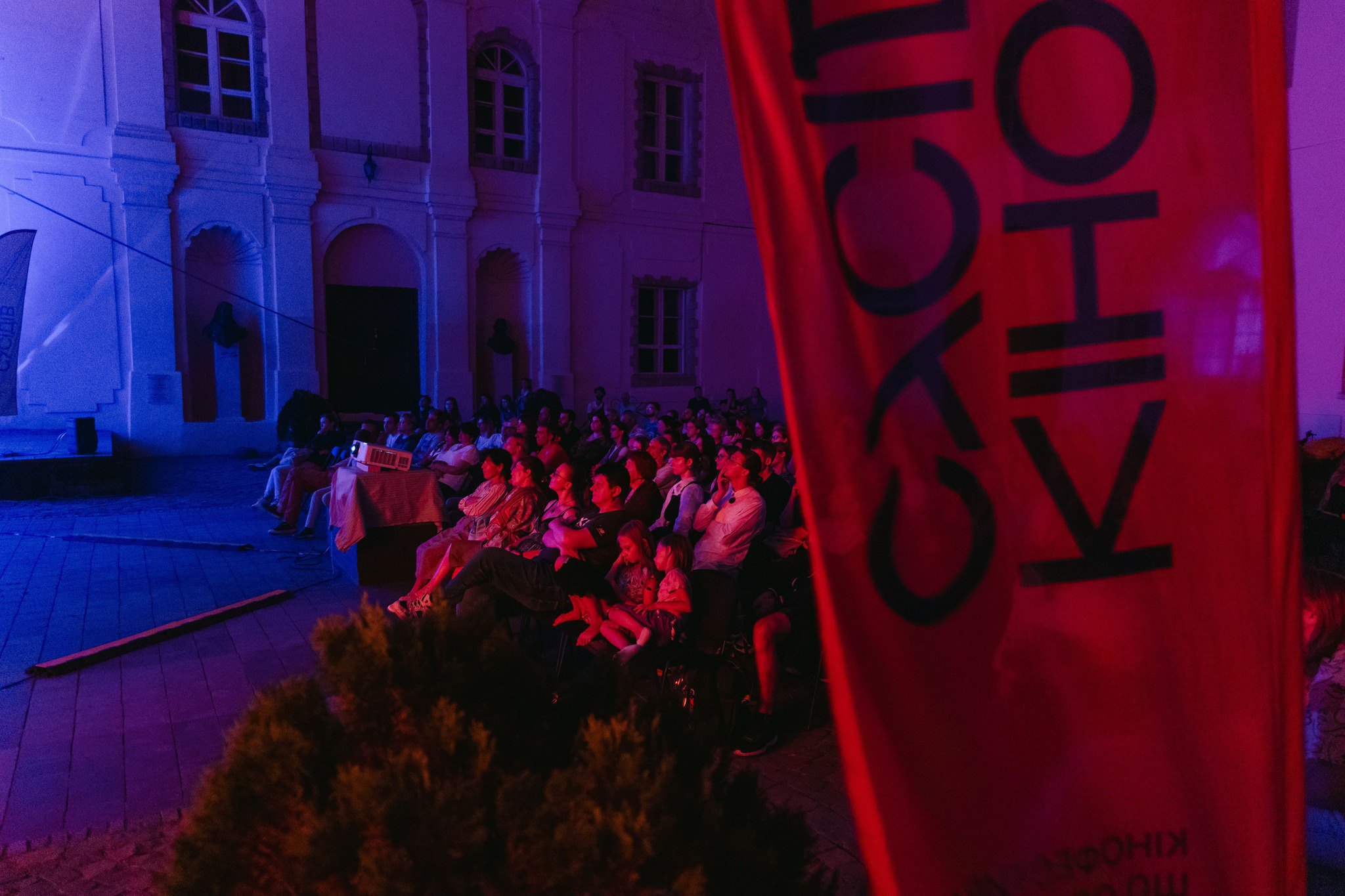
How do you see the ideological concept of neighbourhoodhood embedded in this festival?
When we were thinking about the concept of the festival, we started from the premise that neighbours used to know everything about each other. And so it happened that there are close historical, interpersonal and everyday ties in the region: some people worked abroad, some have relatives living there — but in the context of cinema and contemporary culture, there are certain gaps. My generation, like the previous one, listened to Slovak and Hungarian radio from childhood and watched cartoons on our neighbours' channels, because there were almost no Ukrainian ones at the time. When it comes to cinema, our neighbourhood is quite limited. Therefore, this festival is one of the media that allows us to get to know the cinema and culture of our neighbours better.
This is the fourth edition of the Neighbours' Cinema. Can we say that the festival is succeeding in establishing horizontal ties with the citizens and institutions of Hungary, Slovakia and Poland, despite the difficulties and confrontations in official intergovernmental relations?
Time will tell whether horizontal ties can be established. Of course, the concept of the festival is such that we work with a number of international partners, and they disseminate information about the festival, the films and the region among their audience.
An important aspect of the partnership is that they share their expertise and experience, visit Uzhhorod, share their knowledge, and help shape the programme — but then Ukrainian filmmakers and filmmakers travel to them. The strategic plans are to transform into an open community of festivals on both sides of the border, which will help the circulation of films in the region.
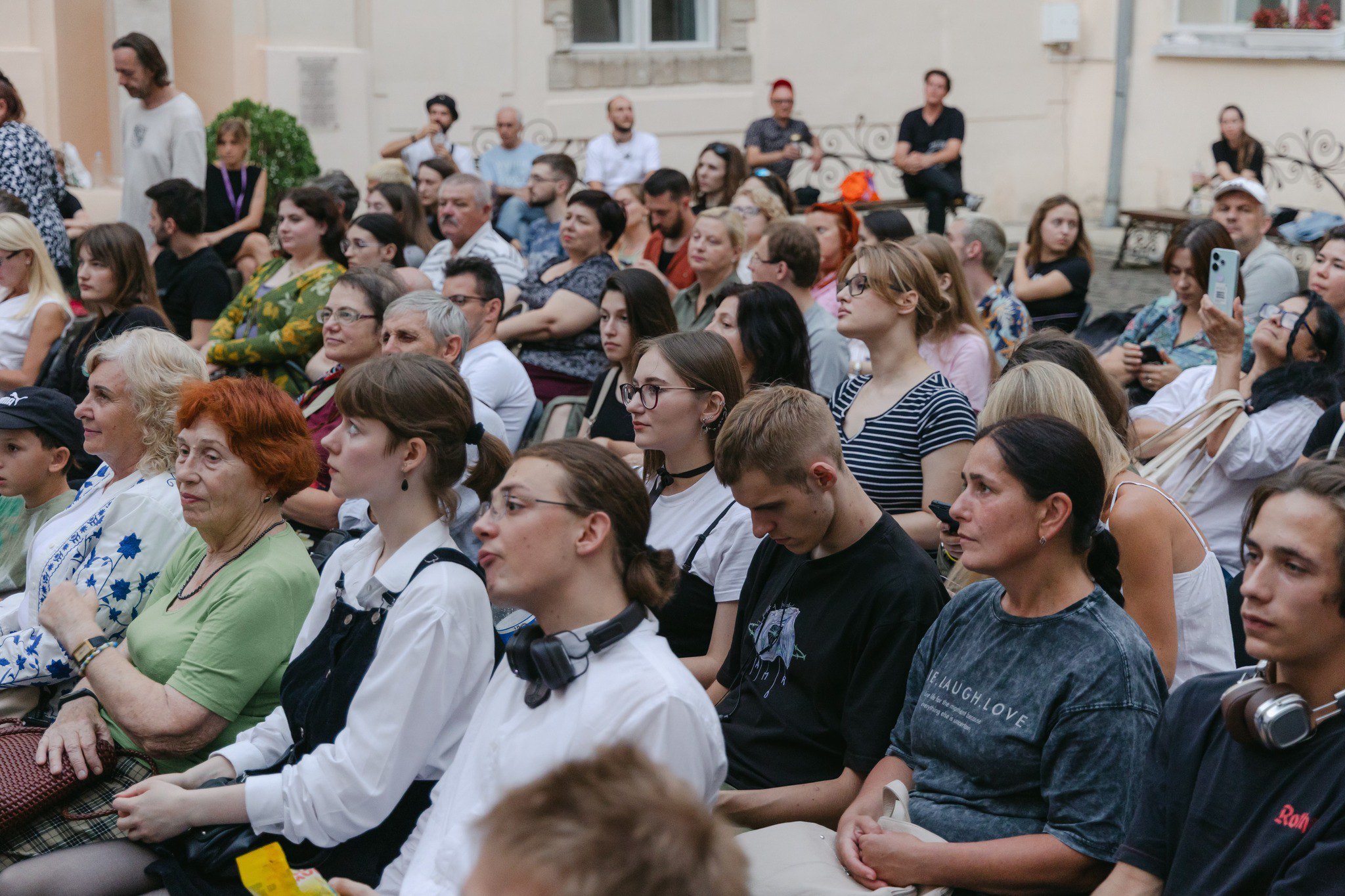
To what extent can we say that Neighbours' Cinema is about soft power in shaping the image of Ukraine in the Central European region?
It is probably too early to talk about any significant role of the festival in shaping Ukraine's image in the region — that would sound too grandiose. However, we definitely want to and can be part of this process. Neighbours' Cinema is an attempt to build connections, initiate dialogue and present ourselves not through slogans, but through living, human cinema. And if this helps people to better understand who we are, then that will be our soft power.
Who are the viewers of the Neighbours' Cinema festival? Does it have an audience from European countries?
Neighbours' Cinema is primarily a local festival. Its main audience is the residents of Uzhhorod and Transcarpathia. But with the start of the full-scale invasion, the region has become a refuge for many people from different parts of Ukraine, and the festival is also an opportunity for them to get to know the local context better: to learn more about the history of Transcarpathia, about our neighbours, about the national communities that live here.
A separate part of the audience consists of national communities who have the opportunity to watch films in the languages of their ancestors and feel a connection with their own cultural heritage. This is extremely valuable to us.
Of course, we are very happy about every example of festival tourism, when viewers from other regions come to Uzhhorod specifically for the festival. In the context of war, this is not yet a very common phenomenon, but every time it happens, it is a sign that the festival is becoming a point of attraction.
Another important part of our audience is foreign guests: filmmakers, partners, researchers, sometimes even anthropologists. Sometimes their interest in the festival is linked to personal history — some have family roots in Transcarpathia, others are looking for a connection with the region through culture. We are always open to such dialogue.
The cinema of Central European countries is little known to Ukrainian audiences. What themes and trends can be seen in their films?
Yes, it is true that Central European cinema is not the most popular in Ukraine. It is almost absent from cinemas and television. It is only abundant at international and thematic film festivals in Ukraine, mainly in Kyiv and other large cities. Of course, everything can be found online, but without navigation, it is often terra incognita.
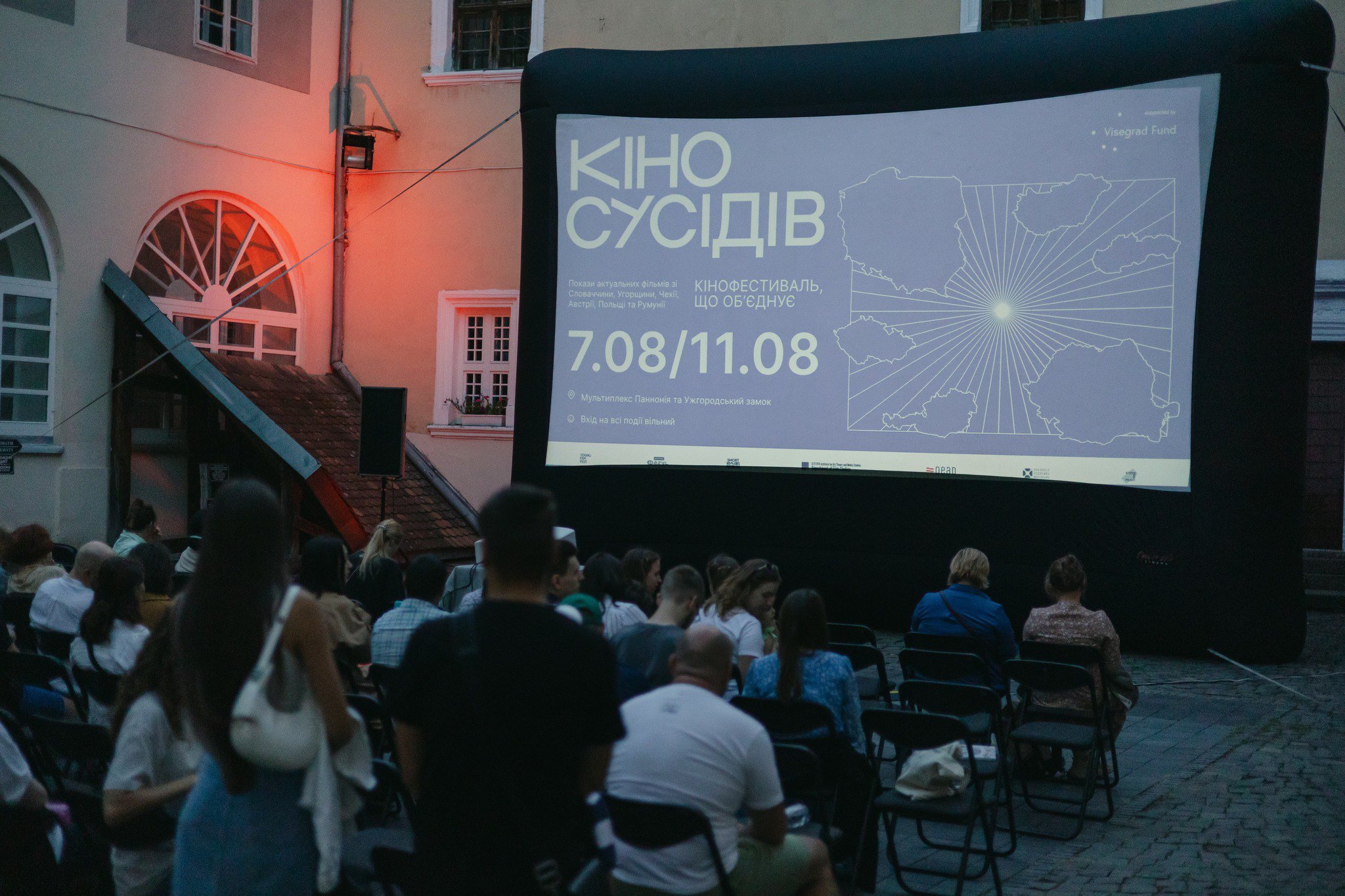
As for the themes, it all depends on the film. There is auteur cinema, and it would seem that it is about uniqueness, originality and the expansion of cinematic language, but it is in such films that you can sometimes recognise yourself, your city or your surroundings. Therefore, it is more universal when locality is an advantage rather than a limitation.
At the same time, there is national cinema with characteristic local humour based on cultural codes and stereotypes. Such films rarely travel beyond the country's borders, and that is perfectly normal. For example, in the Czech Republic, national films account for about 30% of box office sales, and in Poland, about 25%. And these are mainly films aimed at their own audience.
How much do Ukrainian cinema and the cinema of its western neighbours have in common?
This is not an easy question, especially today. Before the full-scale invasion, we had more in common with the cinema of our western neighbours: love, drama, urban life. Both sides tried to tell local stories, talk about inner experiences, and find something universal in them. But now, in Ukrainian cinema, which still reflects society, the most powerful stories are related to the war. Therefore, the contexts are different.
But there is also another layer: many filmmakers in Central Europe are now working with Ukrainian themes, filming the war. In addition, many Ukrainian films are now being made in co-production with Central European countries, and thus purely Ukrainian stories often end up at film festivals, on cinema screens and on television there. One of the strategic goals of our festival is to strengthen these ties and promote closer cooperation between Ukraine and its neighbours in the field of cinema.
How interesting is Ukrainian cinema to its western neighbours? Can telling local stories promote international understanding?
Both Ukrainian and Central European cinema often tell local stories, but that is precisely where their value lies. Local stories allow us to see a depth that is often overlooked and to immerse ourselves in a specific cultural, historical, and social context. In my opinion, it is precisely these stories, sincere and humane, that build bridges for intercultural understanding and help us feel a sense of community and empathy, even when we are dealing with completely different realities.
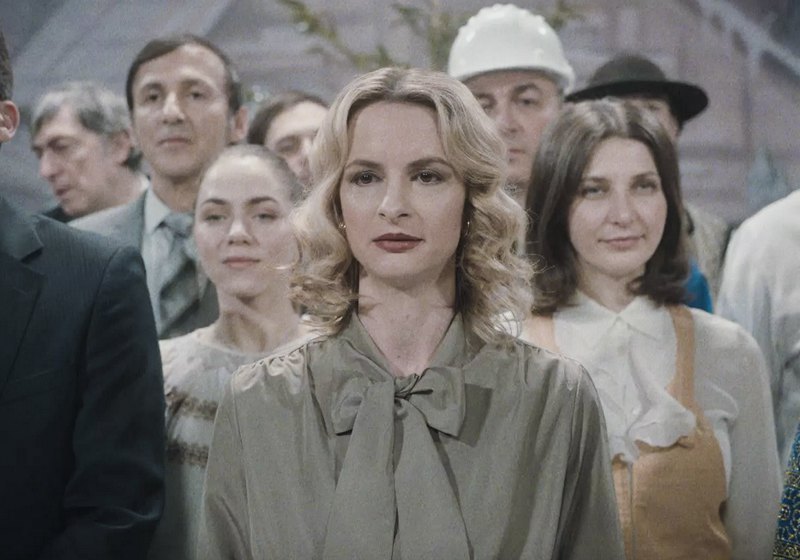
This year, the festival programme includes two films with similar themes: the Czech film Waves by Jiří Madla and the Romanian film The New Year that never came by Bogdan Muresanu. Both films tell the story of communist dictatorships, which is very familiar and understandable to Ukraine. To what extent is the theme of memory, particularly about dictatorships, a common point with our western neighbours?
This experience — of communist dictatorship and Soviet occupation — is not only familiar to Ukrainians. It is also familiar to Czechs, Romanians and Poles. That is why they are still making films about it, even 60 years later, and The Waves and The New Year that never came are vivid examples of this. Such films are an attempt to talk about, relive and explain traumatic experiences through art. And often these are not heroic epics, but films about ordinary people who are faced with a choice.
The idea of including films about historical memory in the programme is a way of showing that we share a common, albeit painful, history with these countries. We rarely talk about this in Ukraine, but our neighbours — Romanians, Czechs, Slovaks, Poles — also lived under dictatorships, were also oppressed by occupying powers, and also remember tanks on their streets. And perhaps it is this memory that is another key to understanding why they support Ukraine today. Perhaps this is why there are popular initiatives in the Czech Republic to raise funds for weapons, and why Poland was the first to accept millions of Ukrainians. They remember. They know what ‘liberation’ is, which no one was waiting for.
This year's retrospective features films from a generation of moral unrest. These are Polish directors who made films that opposed the communist government of their country. Their films reflected concerns about the moral decline of society due to socio-political changes. Why did you choose this particular retrospective?
For us as a festival, it is important to work not only with contemporary cinema, but also to raise historical layers, between which there are often gaps. We want to show that our neighbours have had and continue to have an impact on the history of world cinema. Names such as István Szabó, Béla Lugosi, Miloš Forman, Krzysztof Kieślowski and dozens of others are part of the world's cinematic heritage.
Last year, we asked Uzhhorod residents involved in cinema — Antonio Lukich, Oleksiy Umanskyy — to choose their favourite films. This year, we decided to focus on films from a generation of moral unrest. Firstly, because we are currently living in morally turbulent times. Secondly, because these directors worked under strict state censorship, when only the state apparatus had the right to the truth. They are a vivid example of the devastating legacy of the Soviet regime.
The history of these films is a history of resistance, a history of moral choice, a history of how art speaks even when it is forbidden to speak. It was under these conditions that names were born that became symbols of European and world cinema of the 20th century. Therefore, this retrospective is not just a look back, but a very relevant gesture that resonates in our present.
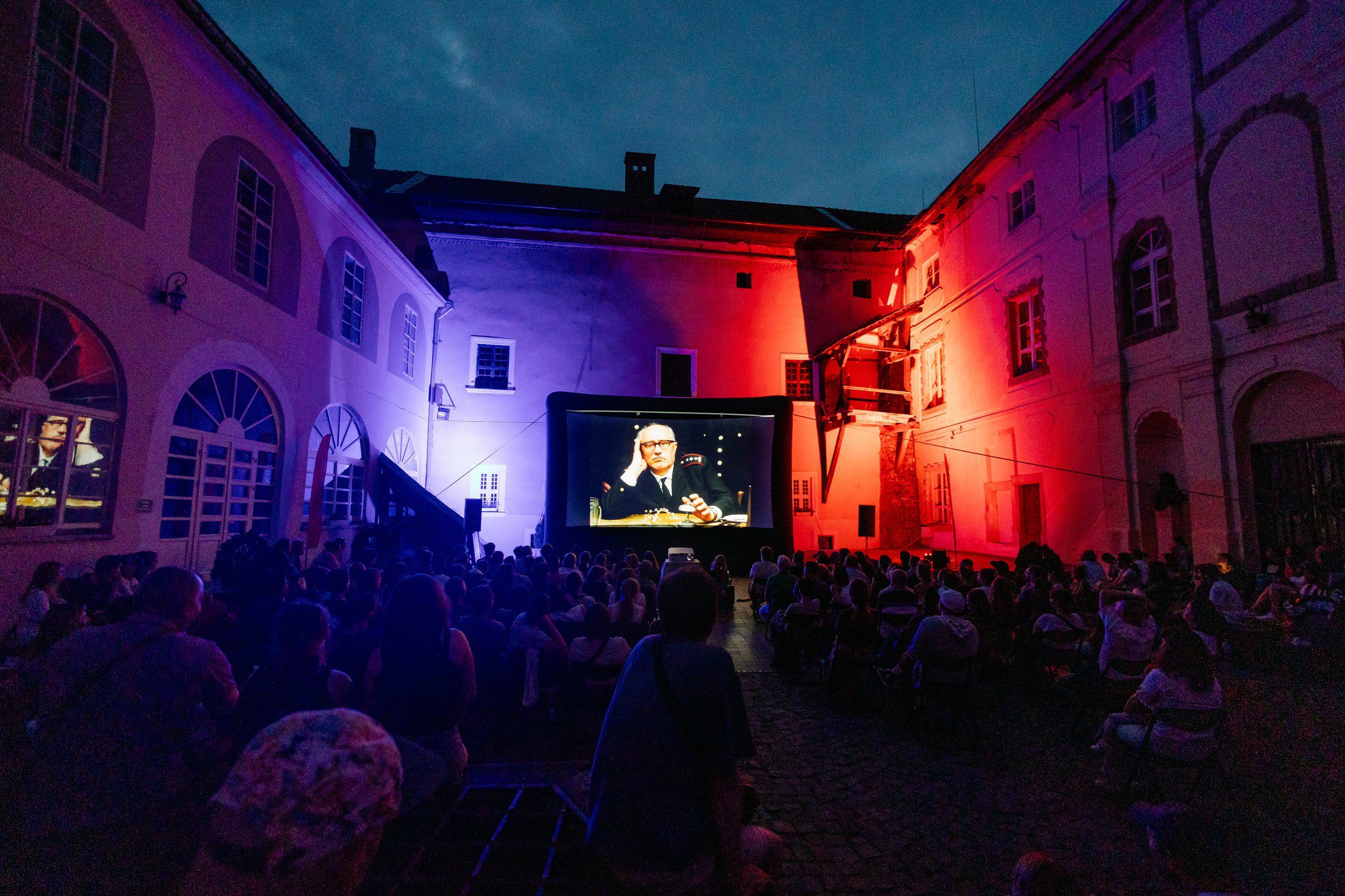
Is there currently a trend towards moral unrest among artists in Central European countries, given the socio-political instability in the region?
I would not presume to generalise about Central European artists. But if you look at our closest neighbours — Hungary, Slovakia, even Poland — many authors there work in spite of, rather than because of, the circumstances. Their cinema is a way of resisting what they disagree with, a way of not losing themselves, not always openly, but consistently. This struggle is not always easy to understand from the outside, outside of context. For me personally, the Hungarian film The Lesson from our programme is about just that. There, the director uses the school as a mirror of contemporary Hungarian society, in which even those who do not believe in the rules behave according to them.
Name one Austrian, Czech, Slovak, Romanian, Polish and Hungarian film that Ukrainians should definitely watch.
Austrian — Ulrich Seidl, Export-import, at least because it was partly filmed in Uzhhorod; Czech — Miloš Forman, The firemen's ball; Hungarian — László Nemes, Son of Saul; Polish — Michał Marka, All sleepless nights; Romanian — Călin Peter Netzer, Beyond the child; Slovak — Mira Fornaj, My dog killer.
